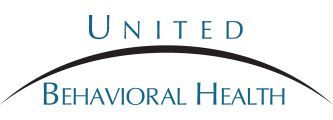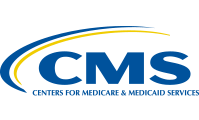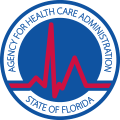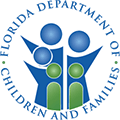North Tampa Behavioral Health is a leading rehab center for individuals struggling with opiate abuse. Located in Wesley Chapel, the expert staff at North Tampa provides lasting recovery through holsitic care and comprehensive programming.
Treatment for Opiate Abuse
Learn more about Opiate Abuse Treatment in North Tampa
Opiates, such as OxyContin, Vicodin, morphine, and heroin, are narcotics that act on the central nervous system in the body. Opiate addiction is a dangerous and deadly disease that requires long-term treatment and care to promote recovery. Many men and women who use opiates will become physically dependent within the first or second use. These drugs are typically prescribed by a physician to treat pain, however they are becoming more prevalent on the streets where they are sold for the purpose of getting high.
As the leading treatment center in Tampa for opiate abuse, we are dedicated to helping each patient that walks through our doors. We have helped many individuals struggling with addiction problems and we understand that this is a very difficult and trying time in your life. No matter your concerns, the staff at North Tampa will do everything they can to provide you with a safe and compassionate atmosphere that promotes healing. You no longer have to battle your addiction alone— the staff at our rehab center are here for you.
Helping a Loved One
How To Help A Loved One Enter Inpatient Rehab for Opiate Abuse & Addiction
One of the most heartbreaking and challenging things about seeing someone you love suffering from addiction is the feeling of helplessness. If someone you love is struggling with an opiate addiction, it is likely that you are also facing a wide array of emotions such as fear, anger, shame, and self-blame. You may wonder how to approach your loved one about their addiction and what you can do to encourage your loved one to get help. At times, you may be so overwhelmed that it seems much easier to ignore the problem. However, in the long-run, pretending that nothing is wrong will only cause more damage to you, other family members, and the addict.
It is important to remember that even though you are dealing with a loved one’s opiate addiction, that you also need to take care of yourself and get the support you need. Find someone whom you can talk with openly and honestly about the situation and how you are feeling. There are free peer support groups such as Nar-Anon that you can join for families coping with opiate addiction. Listening to others can be a huge source of relief and support.
You should also take the time to educate yourself about what opiates are and what being addicted to opiates may mean before approaching your loved one. When you do talk to them make sure to fully listen to what they are saying and remember that their feelings are valid. Suggest to them that an inpatient treatment center such as North Tampa may help them to get their addiction under control and help them relieve some of the emotional pain that they are holding onto. You can help your loved one by making appointments for them, offering to go with them to any appointments, and continuing to offer your unconditional support.
When making the decision to talk to your loved one about seeking treatment, it is important to remember a few things. You cannot force someone you love to stop abusing opiates— the choice is up to them. You can’t expect them to change overnight and stay sober without help. Rehab and recovery is an ongoing process that requires lots of time and patience.
Why Consider Us
Why Consider Inpatient Treatment at North Tampa Behavioral Health
Prolonged opiate abuse can lead to nerve damage in the brain, which causes cells to stop producing endogenous opiates – the body’s natural painkillers. This can lead to the inability of the body to prevent pain, as there are no longer any endorphins to mask the feeling of pain. This degeneration of nerve cells that reduce pain can lead to a physical dependence on opiates.
The long-term effects of opiate abuse can be very unpleasant for the addict, and soon begin to affect every aspect of their lives. The longer you have abused this drug, the more your world has begun to evolve around getting high. In addition to the many negative health consequences that come with opiate abuse, you may have lost those closest to you, ended up losing your job and as a result, are now living on the streets. There is no good that can come of abusing opiates.
Many health professionals recommend an inpatient treatment centers such as North Tampa to allow men and women with opiate addictions to begin stabilization and therapeutic methods of healing. Inpatient treatment for opiate addiction has been shown to be one of the most effective forms of intervention available. Rehab centers provide you with the encouragement, guidance, and comfort needed to continue to be successful in your recovery. Continued recovery will depend on sustained mental health treatment, learning better coping strategies, and making better life decisions.
Philosophy and Benefits
Our Treatment and Rehab Philosophy and Benefits
At North Tampa Behavioral Health, we use an eclectic approach to treatment that stems from the belief that successful recovery involves effective case management and stabilization. All of our rehab is specifically designed to ensure that you feel supported and comfortable throughout your stay as you work toward your recovery goals. From the moment you come to us, you will receive nothing but the respect and dignity you deserve. Our goal is to make you feel secure, not only in your recovery, but in all areas of your life.
We take into account all aspects of the individual as we help you create a rehab plan designed specifically for your needs. The treatment team at North Tampa will work closely with you from the very beginning, laying out agreed-upon goals to meet throughout each step of your treatment.
Types of Therapy
Types of Therapy We Use to Treat Opiate Abuse and Addiction
The first step in the treatment process is a complete physical and psychological assessment. These assessments are done in order to gather as much information about you as we can so that we know you as a complete person instead of just a list of symptoms. The information we gather from these assessments will be used to design a treatment plan to suit all of your needs.
Medication may be included in your treatment plan. Medication is used during the detoxification process in order to help manage the unpleasant symptoms of withdrawal. Additional medication may be used on a long-term basis to help control the symptoms of any co-occurring disorders. As you progress through your recovery, and learn more effective coping strategies, you may be able to reduce or even stop your medication. In addition to medication, some of the other therapies we offer include:
Detoxification is a process used for patients who come to us physically dependent on opiates or other substances. The detox process is used to effectively and safely remove all drugs substances from your body.
Group Therapy is one of the main methods of rehab we use at North Tampa. These sessions may include process groups, psycho-educational groups, and skills-based groups. All groups at our treatment center are designed to help educate our patients about addiction, help them process their emotions, and teach them better life skills. Some group topics may include stress management, assertiveness training, social skills training, and learning effective coping techniques.
Cognitive Behavioral Therapy (CBT) is an effective technique used in opiate addiction treatment. During CBT, you will explore the negative ways you think and learn how to replace those thoughts with more positive ways of looking at the world. This will help you to change your behaviors for the better.
Family consultation is an important part of the rehab process as opiate addiction affects the whole family. During family consultations, you will identify problems within the family dynamic caused by opiate addiction. Additionally, your family will be connected with appropriate outside resources where they can learn about addiction, the treatment process, and how to cope with their feelings.
Continuing Care
Continuing Care – What Comes Next?
Once you have completed your inpatient treatment at North Tampa, you will meet with your rehab team to establish a care plan to ensure your continued success. There are a number of step-down treatment tracks for you to transfer to. If you feel that you are not ready to leave the structured setting of an inpatient center, a residential center may be your next best step. These programs provide individuals with 24-hour supervision and a highly structured environment.
Other men and women may be more comfortable in our Partial Hospitalization Program (PHP) or our Intensive Outpatient Program (IOP). Both programs provide the same types of services offered in inpatient programs, but they allow you to also reintegrate back into your community. They offer a variety of different programs throughout the week, such as individual, group, and family counseling.
In the event that you are being discharged home, we will refer you to our outpatient therapy program and connect you with community support to continue your treatment and recovery on an outpatient basis.











